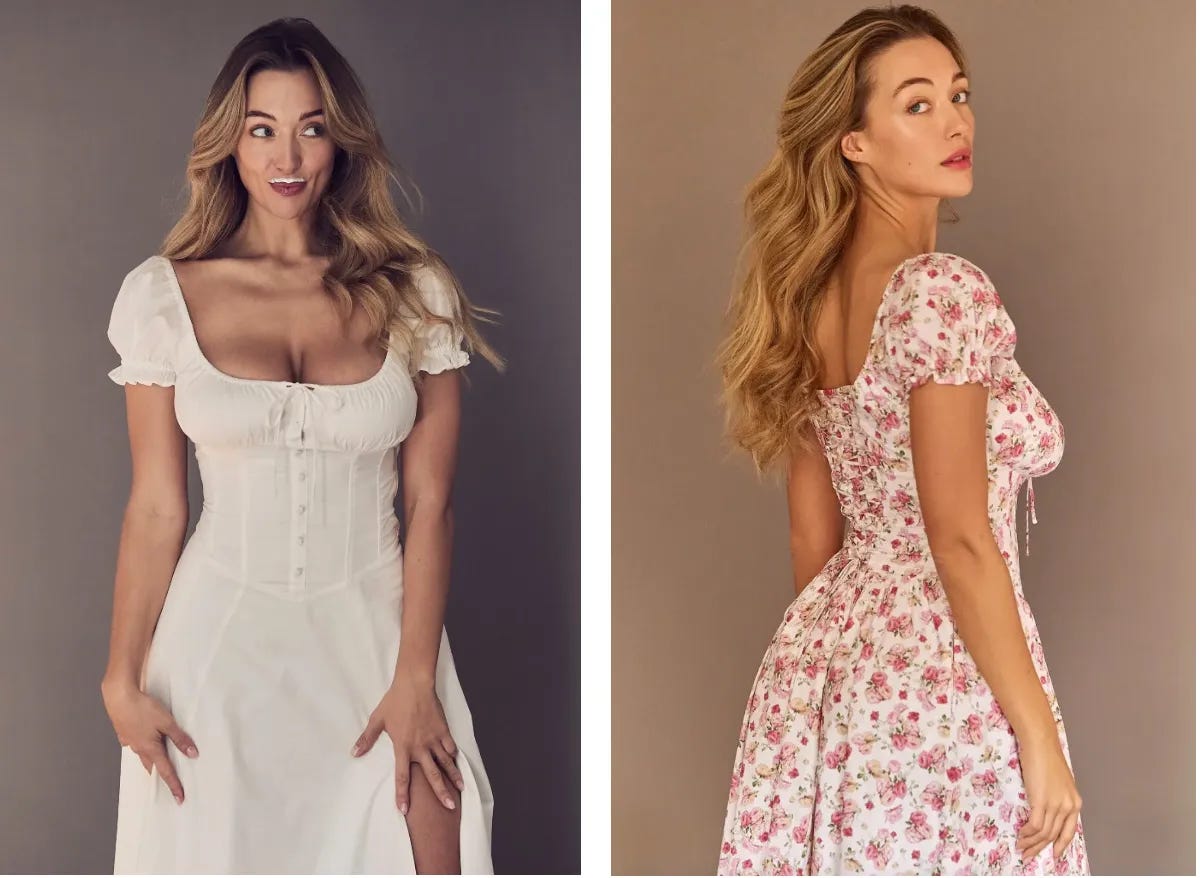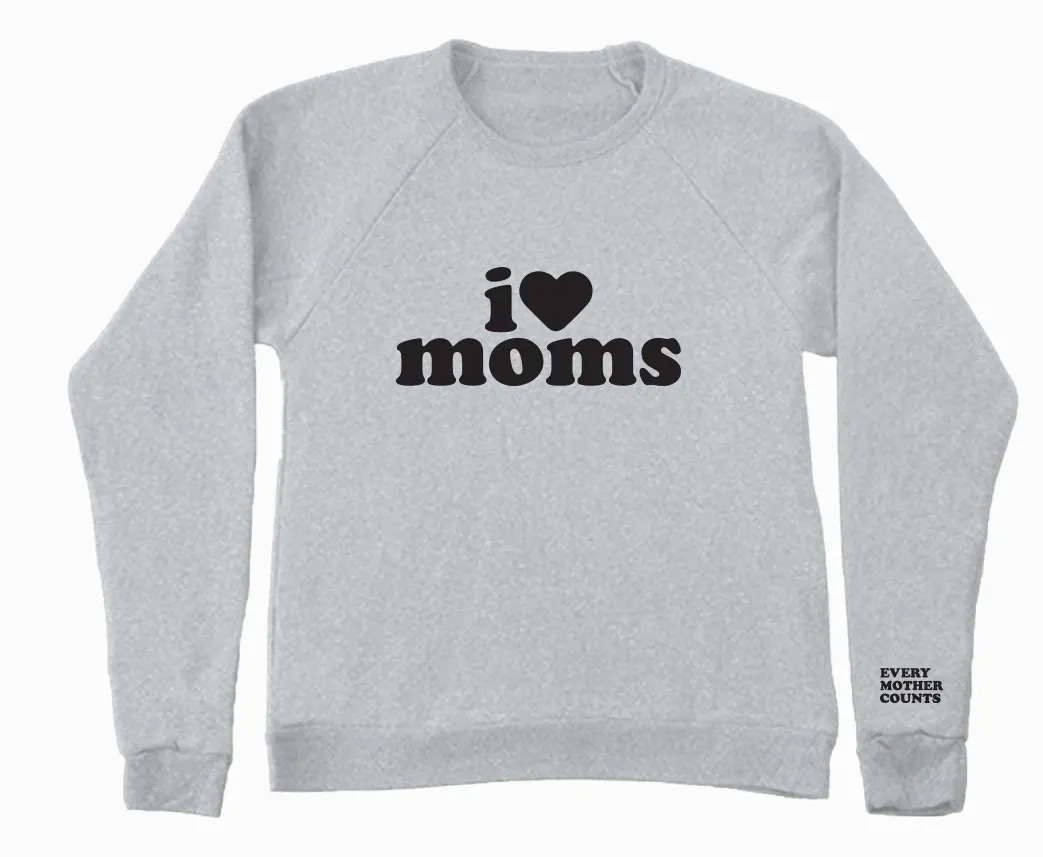Why the obsession with sexy milkmaids?
Plus, how girls are fighting transphobia, the Couric effect, and other links for your Monday
You’re reading the roundup of things we’ve loved lately, a feature for paid subscribers.
For just over $4 a month, you can upgrade to get access to all our paid content, group chats and book clubs. Plus, you’ll support independent feminist writing, AND be part of something that J.D. Vance would absolutely loathe. Brava!
I have a favorite cozy sweatshirt that I live in on the weekends. It’s gentle heather gray, just the right weight, fuzzy and soft.
But I’ve been self-conscious in it lately, because it’s emblazoned with the phrase, “I Heart Moms.”
I worry sometimes about my public expression of support for people who are mothers, because of the way that pro-natalist forces that are on the rise in the U.S. would equate praising moms with their selective “traditional values.”
I purchased the sweatshirt to support the work of a global maternal health organization called Every Mother Counts. But in our dystopian world of federally-endorsed misogyny, could I, in publicly supporting mothers, be understood to be anti-feminist?
The fact that motherhood has been co-opted by right-wing groups, among other things, conveniently ignores the fact that so many feminists are themselves mothers — that their progressive, feminist values are fueled by their work as moms.
I’ve loved reading Lane’s writing on this topic, and especially as it relates to the Mormon faith she grew up in — and left behind as an adult — and how she’s wrestled with the way patriarchy still shapes the experience of so many Mormon women.
She’s pushes back on the idea that Mormon women are a monolith, documenting a long history of Mormon women’s protest, including a recent social media firestorm about disempowerment in the church.
Last week, she took a deep-dive with into how it is that Mormon influencers like Hannah Needleman and her sister Micka Wright Perry, became so aligned with right-wing values. Here’s just a taste of what she wrote:
I think part of why this kind of content is really successful in terms of pronatalism and pushing alt-right ideas is because the alternative doesn’t feel that appealing or relatable to a lot of women.
And I think what a lot of people miss about the kind of pronatalism that Micka displays is that it also gives women a sense of status. Which is something that women everywhere understandably crave in a society that chronically undervalues women, women’s bodies, and their domestic and reproductive labor.
The feminist writer
, who we talked to not long ago about getting liberated during menopause, has been documenting ways that white women have been busy “putting lipstick on the pig that is Project 2025.”She also dug into white women’s “traditional” femininity and a rising Christian nationalism, in an essay that compares images of sexy blond milkmaids with ideas about women in the Middle East, wearing hijabs and burqas.
The implication: That women in hijabs unilaterally represent female oppression, while a white woman in a dress “that makes her look like a sexier extra from Little House on the Prairie” — well, she’s just happy to be back on the farm.

Keep reading with a 7-day free trial
Subscribe to Matriarchy Report to keep reading this post and get 7 days of free access to the full post archives.




